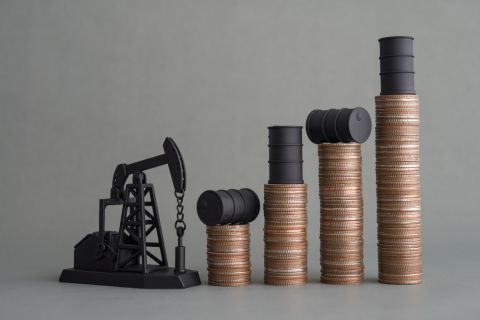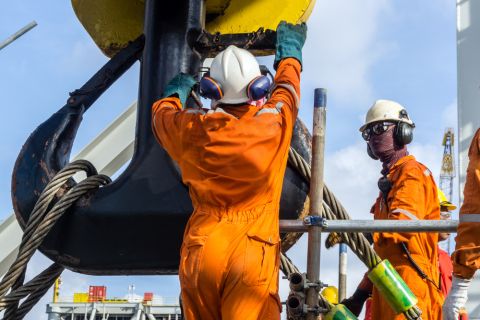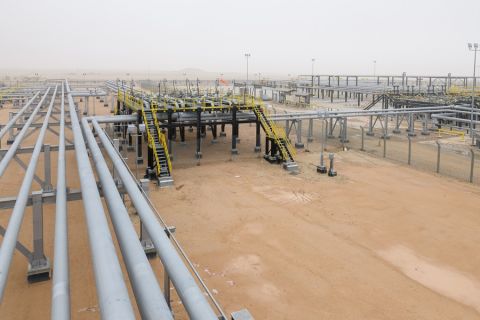Barry Rust, Tata Steel
The oil and gas industry has suffered a “double whammy” as a result of the depressed oil price.
Firstly, demand growth slowed—exacerbated by a reduction in Asian expansion—which has been compounded by cyclical weakness in economic growth.
We’ve also seen two years of resource abundance, with global supply surfing the technological wave, assisted by growth in North American shale and record production levels from OPEC’s member countries. And while OPEC recently agreed to cap production by 1.2 million barrels per day, that policy is expected to be short-lived.
Meanwhile, sharp cost reductions and technology gains in wind and solar energy have led to the largest increment on record for the growth of renewable power generation.
Investment reduction has been inevitable and the number of oil and gas projects being commissioned has reduced.
A natural and responsible reaction to such a climate has been to “tighten the belt” and concentrate on costs to ensure survival. However, such a one-dimensional approach is unlikely to create long-term sustainability.
This begs the question: in our overriding attention to costs, are we making sure that we maintaining our focus on risk?
As an industry we need to take the necessary actions on costs, but how do we ensure that our risk profile is not compromised?
Firstly, we need to adopt a life cycle approach to the challenge. Returning to a failed solution, later on, will only increase the cost profile of a project and there will always be unintended and unwelcome consequences of such failures. Getting it right first time is not enough: getting it right first time and for the lifetime of the project is crucial.
Tata Steel has a long history of providing total project answers to solve industry challenges, and our work on the Culzean project is a good example of this. Culzean is one of the largest finds in the North Sea in the last 10 years and includes a mix of technical challenge and supply chain complexity.
We provided a complete project solution to our customer Maersk including high specification pipelines for the HP/HT field and the associated corrosion solutions as well as the negative buoyancy coating and bends and elbows for offshore use.
Secondly, as an industry, we need to look beyond our traditional organizational boundaries to develop appropriate responses and manage risk. When clients really appreciate the value of collaboration and share their challenges early in the project this can generate some remarkable results.
Premier Oil’s Catcher project is an excellent example of how cross-organizational collaboration can bring such results. Tata Steel and Subsea 7 have been delivering unique bundle solutions to the North Sea for over 20 years and Premier Oil’s Catcher project is the latest in a long and distinguished list of projects to benefit from this high integrity offering.
This approach becomes even more prudent in the increasingly complex technical and geographical markets in which our industry operates.
In future, it is to be expected that more successful outcomes will depend on such collaborative approaches. This may be due to technology or knowledge share requirements for example.
Thirdly, there really is no substitute for experience. Having a supply chain partner who has experience in developing solutions and managing risk in complex and challenging environments will help to mitigate risk and optimize the holistic approach.
We produce pipeline solutions for uncompromising environments globally but it is our work in extremely challenging sectors of the North Sea that has led to us developing our global position and competitiveness. We currently have over 1 million tonnes of pipelines operating in the North Sea in some of the most difficult applications and environments in the world.
Risk management is a core skill in oil and gas—and rightly so in a safety critical industry like ours. By maintaining a risk-based approach, coupled with greater collaboration, we believe oil and gas can not only survive the current situation but also emerge from it, better prepared for future challenges and able to create a more sustainable industry for the next generation.
Barry Rust is the energy and sustainability manager for Tata Steel.
Recommended Reading
US Refiners to Face Tighter Heavy Spreads this Summer TPH
2024-04-22 - Tudor, Pickering, Holt and Co. (TPH) expects fairly tight heavy crude discounts in the U.S. this summer and beyond owing to lower imports of Canadian, Mexican and Venezuelan crudes.
What's Affecting Oil Prices This Week? (April 22, 2024)
2024-04-22 - Stratas Advisors predict that despite geopolitical tensions, the oil supply will not be disrupted, even with the U.S. House of Representatives inserting sanctions on Iran’s oil exports.
Association: Monthly Texas Upstream Jobs Show Most Growth in Decade
2024-04-22 - Since the COVID-19 pandemic, the oil and gas industry has added 39,500 upstream jobs in Texas, with take home pay averaging $124,000 in 2023.
Shipping Industry Urges UN to Protect Vessels After Iran Seizure
2024-04-19 - Merchant ships and seafarers are increasingly in peril at sea as attacks escalate in the Middle East.
Paisie: Crude Prices Rising Faster Than Expected
2024-04-19 - Supply cuts by OPEC+, tensions in Ukraine and Gaza drive the increases.




